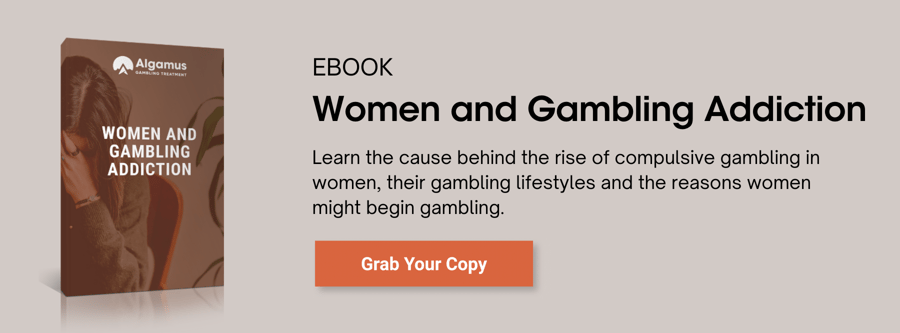By Rick Benson
Gambling addiction is a serious issue that affects millions of people worldwide. Unfortunately, parents with this addiction can negatively impact their families and children. As a child, you may not understand why your parent is acting differently or why they seem distant. In this blog, we will help you identify warning signs of parental gambling addiction. We will also explore the impact it has on family dynamics and how it can affect children emotionally. Finally, we will provide information on seeking help and support for gambling addiction and answer the question: Is recovery from gambling addiction possible? Read on to learn more about this important topic.
Understanding Gambling Addiction
Gambling addiction, a behavior leading to financial ruin and emotional distress, is classified as a mental health disorder with serious repercussions for individuals and families. Factors like dopamine and the reward system contribute to its development. Cognitive Behavioral Therapy (or CBT) is an effective treatment option while seeking professional help and support is crucial for those struggling. By comprehending the complexities of gambling addiction, problem gamblers, and their loved ones can better navigate toward recovery and regain control over their lives.
What Constitutes a Gambling Problem?
A gambling problem refers to an overpowering urge to gamble despite the negative consequences. It includes behaviors like lying, using money meant for other purposes, and accumulating debts. Financial difficulties and strained relationships are common among individuals with gambling problems. Early recognition of the signs is crucial for seeking help and intervention.
Identifying Warning Signs of Parental Gambling Addiction
Financial irregularities, such as unexplained losses or increasing credit card debt, can indicate a gambling addiction in a parent. Changes in behavior, mood swings, and secrecy surrounding whereabouts are warning signs that shouldn't be overlooked. Children of gambling parents may experience social isolation and stigma, while family members may notice a decline in overall well-being and physical symptoms like headaches and stress. Addressing the issue of parental gambling addiction is crucial to protect the entire family from its negative impact. Seeking help and support is essential for problem gamblers and their loved ones.
Financial Irregularities and Unexplained Losses
Financial irregularities, such as unexplained losses and mounting debt, are common signs of gambling addiction in parents. Problem gamblers may resort to borrowing money or using credit cards to fund their gambling habits, leading to financial strain and an inability to meet basic needs. Children witnessing their parents' financial difficulties may experience a lack of stability and security. Recognizing these financial irregularities is crucial in identifying a parental gambling addiction and seeking help. It is important to address the issue to protect the well-being of the entire family.
Changes in Behavior and Mood Swings
Parents with a gambling addiction may display alterations in their behavior, such as a heightened sense of secrecy and defensiveness. Emotional manifestations, like mood swings and irritability, are commonly observed in individuals struggling with gambling addiction. The stress associated with maintaining a gambling habit can significantly impact a person's overall demeanor and relationships. Children may perceive inconsistencies in their parent's behavior, leading to confusion and anxiety. Identifying these changes in behavior and mood swings serves as a crucial step in addressing and tackling parental gambling addiction.

The Impact of Gambling Addiction on Family Dynamics
Gambling addiction can have significant emotional repercussions on family dynamics. Children often feel neglected, anxious, or insecure due to a parent's preoccupation with gambling. Trust issues, communication breakdowns, and financial strain can lead to a breakdown in family relationships. The stigma associated with gambling addiction can also result in social isolation and strained friendships. Understanding the impact of gambling addiction on family dynamics is crucial in seeking support and addressing the issue. By recognizing and addressing these challenges, families can work toward healing and rebuilding their relationships.
Emotional Repercussions on Children
Children of parents with gambling addiction may experience a range of emotional repercussions. Due to their parent's focus on gambling, they may feel neglected, abandoned, or unimportant. This can lead to anxiety, depression, and low self-esteem in children. It is crucial to provide emotional support and counseling for these children, helping them cope and heal. Creating a safe and open environment for communication can also aid in their recovery. By addressing the emotional struggles faced by children affected by parental gambling addiction as shown by Springer, we can help them navigate through this challenging situation and find healing.
How to Address the Issue with Your Children?
When discussing parental gambling addiction with children, open and honest communication is crucial. It's important to have age-appropriate conversations that validate their feelings and offer support. Involving a professional counselor or therapist can provide guidance, and creating stability and routine can help children feel secure.
Seeking Help and Support for Gambling Addiction
Recovery from gambling addiction is attainable through the right assistance and support. Various treatment options, such as therapy, counseling, support groups, and self-help programs with HelpGuide, are available to help problem gamblers overcome their addictive gambling behavior. There are national helplines and organizations dedicated to providing resources and support for individuals struggling with gambling addiction, including those in particular age groups, like young people exposed to online gambling. Seeking help and support is crucial for both the gambler and their family members, who can also benefit from education and assistance in coping with the impact of gambling addiction. Overcoming social isolation and stigma is essential in the journey toward recovery.
Is Recovery from Gambling Addiction Possible?
Recovery from gambling addiction is achievable through the right support and treatment. Motivation and commitment are key factors in the recovery process. Cognitive Behavioral Therapy (CBT) can help identify and change unhealthy gambling behaviors. Family, friends, and support groups provide encouragement and accountability. Seek professional help for personalized treatment plans.
Conclusion
If you or someone you know is struggling with gambling addiction, it is important to seek help and support. Recovery from gambling addiction is possible with the right treatment and support system. Remember, you are not alone in this journey. Reach out to professionals who can provide guidance and assistance. Don't let gambling addiction negatively impact your family dynamics and emotional well-being. By addressing the issue and seeking help, you can create a healthier and happier environment for yourself and your loved ones. Take the first step toward recovery today and contact us for more information.




